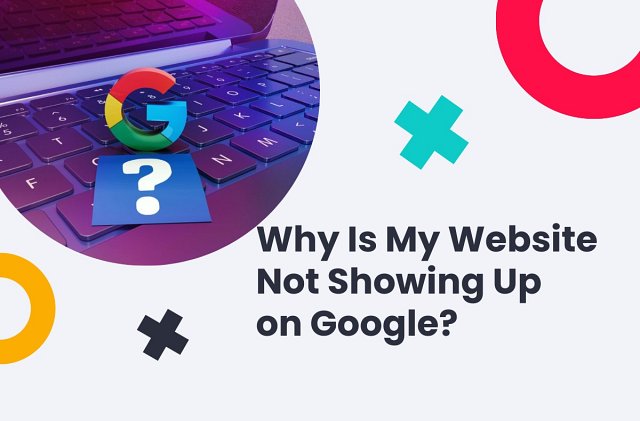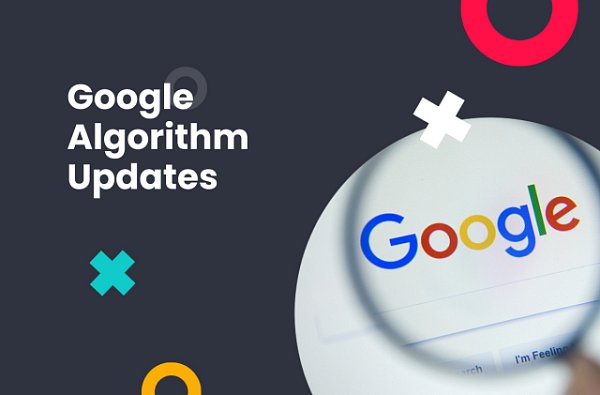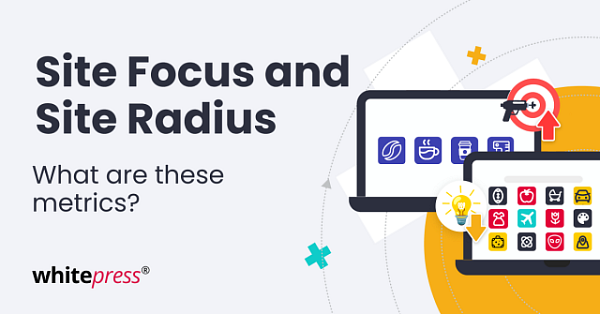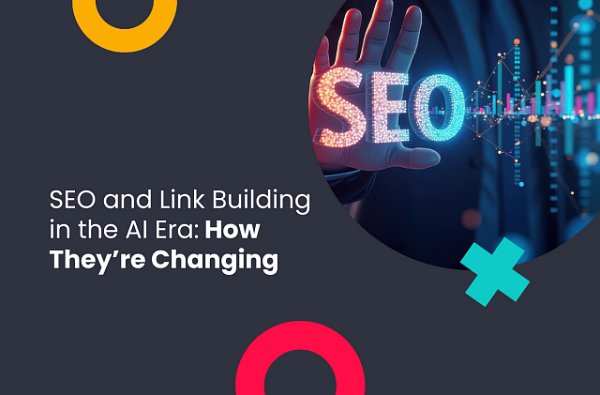(12 min. read)

Why is my website not showing up on Google?
There are many potential reasons why your site is not showing up in Google’s search results — from lack of SEO to crawling and indexing problems, to even penalties given by Google to lower searchability of sites that use unfair practices. Google’s algorithms consider the quality of content as well, so if your site has thin or duplicate content, it might also be penalized and more difficult to search.
The 11 most common reasons why your website is not in Google’s search results are:
- 1. Your Site is New
- 2. Crawling Errors and Indexing Problems
- 3. Errors in Robots.txt File
- 4. Poor Website Structure
- 5. Duplicate Content
- 6. Poor Keyword Optimization
- 7. Security Issues
- 8. The page is blocked for non-logged-in users
- 9. Low Quality Backlinks
- 10. Google Penalties
- 11. The SafeSearch filter is on
Google Search Console is an invaluable tool in effectively diagnosing and fixing indexing issues. It allows you to see exactly how Google views your site, what errors might be affecting your visibility, and provides insight into how your site appears in search results. You can check for crawling errors, submit your sitemap for efficient indexing, analyze your robots.txt file, review security issues, examine backlinks, and much more.
Now, let’s see what can be done about these potential issues:
1. Your Site is New
New websites will often have to wait some time before they start showing up in Google search results. This delay stems from the time it takes Google’s crawlers to discover and index new content. Typically, it can take several days up to a few weeks for a new site to be indexed, depending on the complexity of your site.
During this time, it’s important to focus on building quality content and establishing a solid online presence through social media and quality backlinks, as this can expedite the process and improve your ranking. Create a sitemap of your website and send it through the Google Search Console to speed up the process.
2. Crawling Errors and Indexing Problems
Crawling errors occur when Google's bots, also known as crawlers, cannot access all the pages on your site. This can happen for various reasons, such as server errors, incorrect redirects, blocked URLs, and so on.
Indexing problems, on the other hand, occur when Google can crawl your site but cannot add it to their index. These issues can be diagnosed and fixed using tools like Google Search Console, which provides detailed reports on crawl errors and indexing status. The Google Search Console also gives you the option to request indexing or ask Google to recrawl your URLs.
404 errors, server errors, and misused noindex tags can prevent crawlers from indexing your site. A 'noindex' directive in a page’s meta tags tells search engines not to index that page. If used incorrectly, it can prevent important pages from appearing in search results.
3. Errors in Robots.txt File
The robots.txt file is a crucial component of your website that tells search engines which parts of your site should or should not be crawled and indexed. Mistakes in this file can inadvertently block important pages from being indexed.
Common errors include inadvertently disallowing crucial directories or files and syntax errors. Regularly reviewing and testing your robots.txt file using Google Search Console can prevent these issues.
4. Poor Website Structure
Google favors websites that provide a good user experience (UX), which includes having a clear, logical website structure. A poorly structured website with complex navigation, broken links, or an unclear hierarchy can impede Google's ability to crawl and index the site effectively, potentially preventing it from showing up on Google.
What’s more, websites that are not mobile-friendly or have slow loading times can also be penalized in rankings. Ensuring your website has a clean, user-friendly layout, with well-organized content and a responsive design, is key to improving visibility.
5. Duplicate Content
Duplicate content refers to blocks of content that are either completely identical or very similar to other content across the web. This can occur within the same website (internal duplicate content) or across different websites (external duplicate content). Google's algorithms are designed to provide the best search experience, which means filtering out duplicate content to avoid showing the same information multiple times.
Websites with a significant amount of duplicate content can be devalued in search rankings or omitted from the index. It's important to create unique, valuable content and use canonical tags when necessary to indicate the preferred version of a page if duplicate content is unavoidable. The tag “rel=canonical” can be used on all duplicate web pages you have created to mark them.
Not marking your duplicate web pages appropriately can water-down link equity you receive from backlinks. Instead of a single page being strengthened by all the backlinks, chances are some will link to the duplicate content instead, wasting the equity.
6. Poor Keyword Optimization
Keywords are at the core of SEO and play a crucial role in how your website is discovered and ranked by Google. Poor keyword optimization means that your website may not be effectively using the terms and phrases that users are searching for, leading to reduced visibility in search results.
Keywords are like bridges that connect users to your content. If your website’s content doesn’t include the keywords that are relevant to your niche or industry, it’s less likely to appear in search results for those terms. Use tools like the Google Keyword Planner or other SEO software to research keywords relevant to your niche. Look for keywords with high search volumes but relatively low competition.
Regularly update your content to keep it relevant and make sure that it continues to align well with your target keywords. Incorporate keywords into your content naturally. They should fit seamlessly into the text, titles, meta descriptions, and URLs.
Keep in mind that overusing keywords in your content in an unnatural way can actually harm your SEO. Google's algorithms are designed to recognize and penalize this practice.
7. Security Issues
Security issues on a website can significantly impact its visibility and ranking on Google. Search engines prioritize user safety, so they tend to penalize or completely remove websites that pose potential risks to users. Understanding and addressing security concerns is crucial for maintaining both your website's integrity and its search engine ranking.
Secure Socket Layer (SSL) and Transport Layer Security (TLS) certificates encrypt data transferred between a user's browser and your website. Lack of an SSL/
If your site has been hacked, there’s a risk that spammy or malicious content has been injected, which can harm your ranking and reputation. Conduct regular security audits to identify vulnerabilities. Tools like Google Search Console can alert you to security issues that Google has detected on your site.
Make sure that your site uses HTTPS by obtaining an SSL/
Regular backups of your website can be a lifesaver in case of a security breach. They allow you to restore your site to a pre-breach state with minimal loss of data. Stay informed about common security threats and best practices. Educate anyone involved in managing your website about basic security measures.
8. The page is blocked for non-logged-in users
One often overlooked reason why a website might not show up on Google is that some or all of its content is inaccessible to users who are not logged in. When search engine crawlers cannot access the content of a page because it requires a login, they cannot index it, leading to its absence in search results.
Search engine crawlers typically access websites as an average user would. If content is hidden behind a login, subscription, or paywall, these crawlers won't be able to index it. Even if some parts of your website are public, web pages locked behind user authentication may remain unindexed and invisible in search results.
Provide a snippet or preview of your content that is accessible to all users, including search engines. This approach allows crawlers to index at least part of the content while still keeping full access limited to subscribers or members. Use schema markup to provide information about your paywalled content. It will help search engines understand the nature of the content and can improve visibility in search results.
Consider implementing Google’s First Click Free (FCF) policy. It allows users coming from Google search to access the first article or page for free before hitting the paywall or login requirement. This method can help in getting such content indexed and can boost SEO efforts of subscription-based websites.
9. Low Quality Backlinks
Backlinks, or links from other websites to yours, are a crucial factor in SEO — but not all backlinks are beneficial. Low-quality backlinks can negatively impact your ranking on Google and may even lead to penalties.
Links from websites that are considered spammy, or irrelevant to your site's content, can be seen as manipulative by search engines. Participating in link schemes, where sites are interconnected solely for the purpose of creating backlinks, is also flagged by search engines as manipulative. While some reciprocal linking is natural, an excessive amount can be viewed as an attempt to manipulate rankings.
Google's algorithms, especially starting with the Penguin update, are designed to penalize sites with many low-quality backlinks. This can result in a significant drop in rankings or even removal from the search index. Conduct regular audits using SEO tools like Ahrefs, SEMrush, or Moz. These can help you identify potentially harmful backlinks.
To remove harmful backlinks, use Google’s Disavow Tool. This tool allows you to ask Google not to take certain links into account when assessing your site.
Instead of trying to accumulate a large number of backlinks, focus on getting high-quality links from reputable, relevant websites. Quality is far more important than quantity in the eyes of search engines.
10. Google Penalties
Google penalties are a significant reason why a website might suddenly drop in rankings or disappear from search results altogether. These penalties are imposed by Google to enforce its Webmaster Guidelines and to penalize practices that negatively impact the quality of search results. Google's webspam team can also issue manual penalties for violations of their guidelines. These penalties are often more severe and can result in partial or complete de-indexing of your site.
There are many potential reasons for being penalized by Google: overusing keywords and hiding text (like white text on a white background), showing different content to search engines than what you show to users, presenting thin, low-quality, or scraped content, participating in link schemes, etc.
Use your Google Search Console account to alert you to manual penalties and significant issues affecting your site. Regularly review your site for compliance with Google’s guidelines and look for any of the common issues that lead to penalties. After addressing the issues, submit a reconsideration request through your Google Search Console account for manual penalties.
To avoid penalties, keep up-to-date with Google’s guidelines and recommended practices. Avoid black-hat SEO tactics that attempt to manipulate search rankings and focus on user experience.
11. The SafeSearch filter is on
The final common reason why a website might not be showing up on Google is the activation of Google's SafeSearch filter. SafeSearch is a feature that helps filter out explicit content in Google's search results. If your website contains content that Google deems explicit or not family-friendly, it might be filtered out for users who have SafeSearch turned on.
SafeSearch primarily filters sexually explicit content, but it can also filter content that is violent or about sensitive subjects. Users can turn SafeSearch on or off in their search settings. For minors, parents or guardians can lock SafeSearch settings.
Review your website's content to ensure it aligns with Google's guidelines on SafeSearch. If your site is not intended to feature adult content, moderating user-generated content is crucial.
For websites that intentionally host adult content, using meta-tags to label this content can help in correctly categorizing it, ensuring that it is only filtered out when SafeSearch is on. If your website covers a range of topics, consider separating adult content from general content. This can prevent your entire site from being affected by SafeSearch filtering.
Conclusion
As we've explored in this article, there are numerous factors that can affect why a website may not appear in Google's search results. From the common hurdles of a new website to the more complex issues like Google penalties and SafeSearch filtering, you’ll need to understand these challenges in order to develop an effective SEO strategy.
Let’s quickly recap our main points:
- Your Site is New: Be patient and persistent in content creation — it’s vital for new websites. Use the Google Search Console to upload a sitemap for faster results.
- Crawling Errors and Indexing Problems: Monitor your website regularly using tools like Google Search Console.
- Errors in Robots.txt File: Make sure that this file is correctly configured to allow search engine access.
- Poor Website Structure and UX: Analyze how difficult your website is to use. A user-friendly and well-organized website aids both users and search engines.
- Duplicate Content: Remove or properly tag duplicate content. Unique and valuable content is crucial for search engine ranking.
- Poor Keyword Optimization: Effectively use keywords that align with user intent.
- Security Issues: Revise your security measures. A secure website is vital for user trust and search engine ranking.
- Blocked for Non-Logged-In Users: Make sure search engines can access your content. Balancing exclusive content with accessible content is important.
- Low-Quality Backlinks: Focus on building high-quality backlinks and disavow low-quality ones if it's necessary..
- Google Penalties: Refer to Google's Webmaster Guidelines to avoid future penalties and remove existing ones.
- SafeSearch Filtering: Understand and categorize your content appropriately to reaching the right audience.
Regular SEO audits are instrumental in identifying and rectifying common SEO mistakes. These audits help in uncovering issues related to site structure, content quality, backlinks, and more. By conducting these audits, you can proactively make adjustments to improve your website's search engine performance.
Consistent updates and fresh content are vital as well. Search engines favor websites that are actively maintained and updated with new information. This doesn't just mean adding new content, but also refreshing existing web pages, fixing broken links, and making sure all information is current and accurate.



